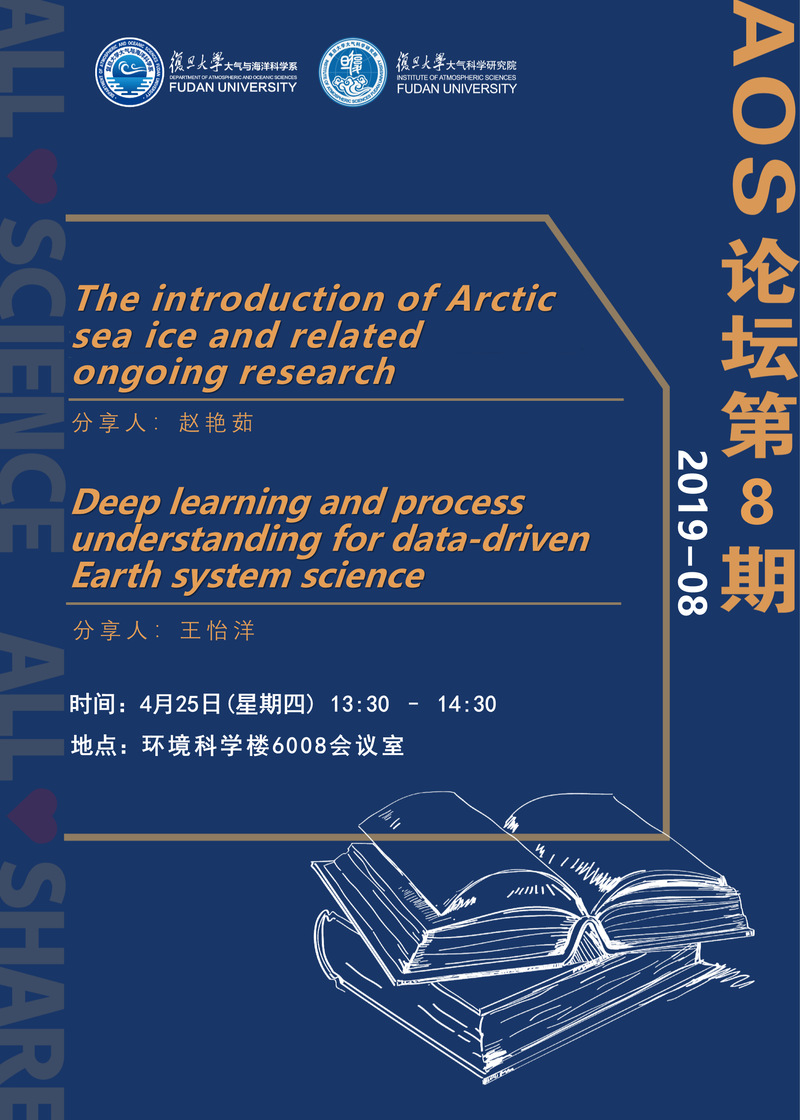
Title: The introduction of Arctic sea ice and related ongoing research
Yanru Zhao
Abstract: The Arctic is a crucial region that influences the atmospheric circulation and weather. The rate of Arctic surface warming is 2-3 times faster than the global mean, which is referred as Arctic amplification. Accompanied by global warming, the Arctic sea ice continues melting and losing. As an important part of the climate system, changes in sea ice have attracted great attention. The report gives a basic introduction of the Arctic sea ice change and some related ongoing scientific research hotspots: environmental change and hazards, climate feedbacks and climate teleconnections.
Title: Deep learning and process understanding for data-driven Earth system science
Yiyang Wang
Abstract: Machine learning approaches are increasingly used to extract patterns and insights from the ever-increasing stream of geospatial data, but current approaches may not be optimal when system behaviour is dominated by spatial or temporal context. Here, rather than amending classical machine learning, we argue that these contextual cues should be used as part of deep learning (an approach that is able to extract spatio-temporal features automatically) to gain further process understanding of Earth system science problems, improving the predictive ability of seasonal forecasting and modelling of long-range spatial connections across multiple timescales, for example. The next step will be a hybrid modelling approach, coupling physical process models with the versatility of data-driven machine learning.